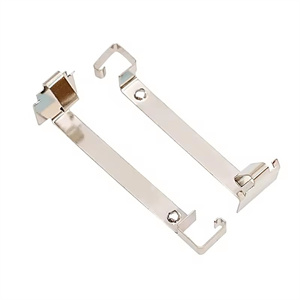Our precision stamping services are widely used in multiple industries, including but not limited to the following main areas:
Automotive industry: The automotive industry is one of the main application areas of precision stamping parts. Our services cover a large number of complex components required in automotive manufacturing, such as brake systems, transmissions, sensors, etc. In addition, we also provide precision stamping parts services for automotive component manufacturers, such as wire forms, brackets, and hangers.
In the field of electronic manufacturing, we provide efficient and accurate stamping solutions for connectors, sockets, small electronic components, and more. These components require extremely high precision and stability, and our precision stamping parts technology can ensure the quality and performance of the product.
Medical devices: The medical device industry has very high requirements for the accuracy and materials of parts. Our precision stamping parts technology can produce precision components such as medical steel wires and medical catheters, meeting the demand of the medical industry for high-quality and high-precision products.
Aerospace industry: The aerospace industry has extremely high requirements for product quality and reliability. We manufacture brackets, bushings, shields, clips, and other components for the aerospace industry, ensuring that each component meets strict tolerance and durability requirements.
In addition, our precision stamping parts services are widely used in multiple industries such as electrical, communication, and machinery. No matter which industry you are a customer in, as long as you have a demand for high-precision stamping parts, we have the ability to provide you with high-quality solutions.
Precision stamping parts have the following significant characteristics:
High precision and low tolerance: able to achieve very small dimensional deviations, usually at the micrometer or even nanometer level. This enables the parts to fit perfectly during assembly, such as small parts in precision instruments, whose high precision ensures measurement accuracy and normal operation of the instrument.
Complex shape forming ability: It can manufacture parts with complex geometric shapes and internal structures, while maintaining good accuracy. For example, in the fuel injector components of car engines, their complex shapes can be achieved through precision stamping.
Excellent surface quality: The surface after stamping is smooth and flat, without obvious defects, scratches or unevenness. This is crucial for some parts that require high appearance requirements or good friction performance, such as the metal frame of the phone case.
Good material performance consistency: Due to the uniform stress and deformation during the stamping process, the material’s performance remains highly consistent throughout the entire part, ensuring the stability and reliability of the part during use.
Efficient mass production: Once the mold design and debugging are completed, it is possible to quickly and massively produce parts of the same specifications, improving production efficiency and reducing costs.
